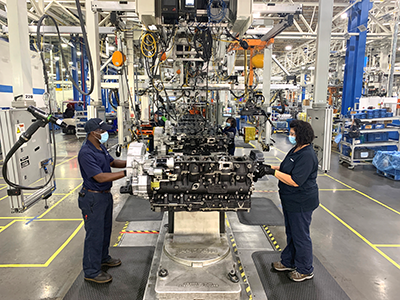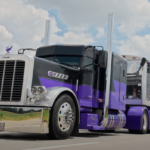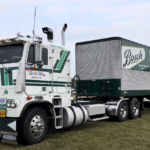Paccar Inc. has announced impressive financial results for the third quarter, reporting a substantial 60% increase in earnings. This surge in profits can be attributed to the growth in margins for their parts division and a notable increase in truck sales, both of which exceeded the predictions of industry analysts.
The company, headquartered in Bellevue, Washington, disclosed that their net income for Q3 reached $1.23 billion, equivalent to $2.34 per diluted share. This marks a significant rise from the $769 million in earnings, or $1.47 per diluted share, recorded in the same quarter a year ago. Paccar, the parent organization of renowned truck manufacturers Kenworth and Peterbilt, also reported Q3 revenues of $8.70 billion, demonstrating a remarkable 23% increase when compared to the $7.06 billion from the prior year’s third quarter.
In particular, Paccar achieved outstanding revenue from truck sales in Q3, amounting to $6.64 billion, a notable increase from the $5.2 billion recorded during the same period in the previous year.
Paccar Inc. significantly outperformed the average predictions of financial analysts, surpassing the consensus estimates of $2.07 per diluted share and $8.02 billion in revenue, as reported by Zacks Equity Research.
“Paccar achieved record net income for the third quarter of 2023,” CEO Preston Feight said in a release. “Paccar’s third-quarter results reflect excellent truck, parts and other gross margins of 19.5% and strong Paccar Parts profits.”
“Investments in innovative new DAF, Kenworth and Peterbilt trucks and enhanced manufacturing efficiency are benefiting truck owners’ operating performance and delivering strong financial results,” he added, referencing one of the company’s global brands.
In the third quarter, Paccar Parts reported a pretax profit of $412.3 million, a notable increase from the $373.6 million reported during the same period the previous year. Additionally, the unit’s revenue amounted to $1.58 billion, exceeding the $1.47 billion recorded in the corresponding year-ago period.
Paccar disclosed that their global truck deliveries for Q3 reached 50,100 units, a significant rise from the 44,400 units delivered in the previous year’s third quarter.
Furthermore, Paccar’s truck deliveries in the United States and Canada totaled 27,500 units, marking a 12.7% increase compared to the 24,400 units delivered in the same period one year earlier.
During the company’s earnings call on October 24th, Chief Financial Officer Harrie Schippers indicated that the deliveries in the fourth quarter are expected to remain at a level similar to those in the third quarter.
“Infrastructure spending in the U.S. has been good for Kenworth and Peterbilt’s truck business,” Paccar Executive Vice President Mike Dozier said.
The company has projected that retail sales of Class 8 trucks in the United States and Canada for 2023 are expected to fall within the range of 295,000 to 315,000 vehicles. This estimate aligns with their previous second-quarter forecast, which also indicated a range of 290,000 to 320,000 Class 8 trucks.
In contrast, a rival truck manufacturer, Volvo Group, made a prediction of 330,000 North American Class 8 sales for 2023 when announcing their own Q3 earnings. For 2024, Paccar anticipates Class 8 retail sales to be between 260,000 and 300,000 vehicles.
During the earnings call, it was noted that demand is anticipated to be robust in the first quarter of 2024, with Paccar’s order book filling up quickly. CEO Feight expressed confidence in the vocational truck market, as well as the medium-duty and less-than-truckload markets. While the large truckload market might see some moderation, he remained optimistic about it, suggesting it could maintain a replacement-level pace.
Additionally, it was highlighted that dealers currently have the ability to place orders for trucks through the first half of 2024, and dealer inventory is returning to normal levels.
Another encouraging aspect mentioned by Feight was the outlook for the company’s in-house MX engine range. Efforts were underway to address supply constraints that had recently impacted sales, and there was an expectation that the share of Paccar trucks equipped with the MX-11 and MX-13 engines would increase from 43% in Q3 and onwards.





